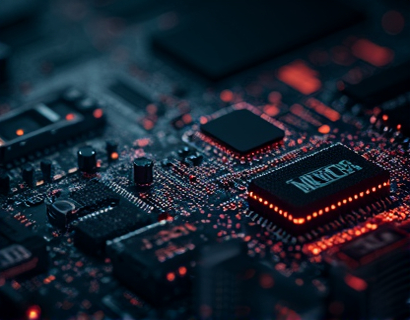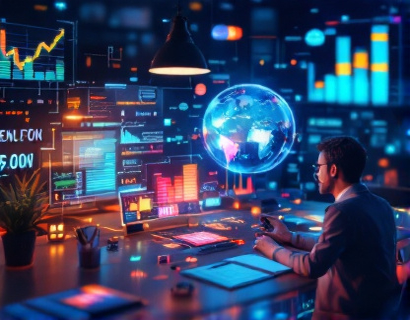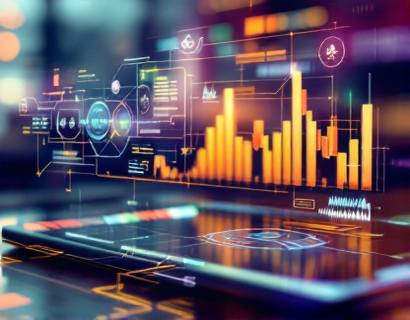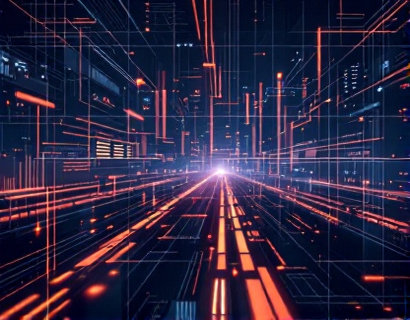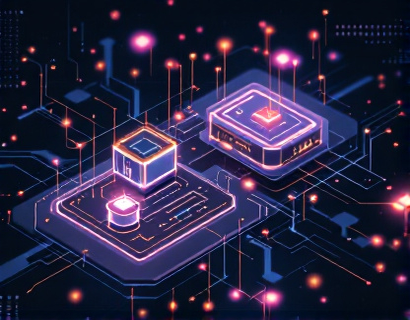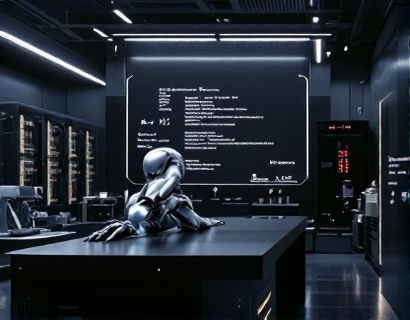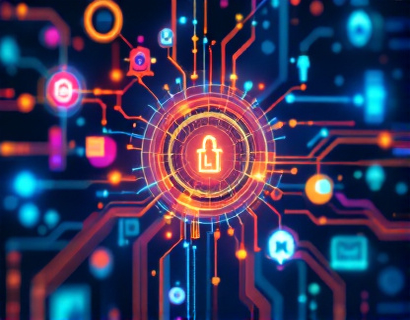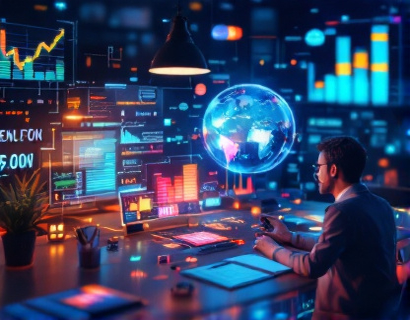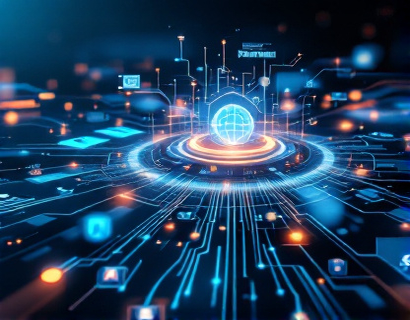Unleashing Next-Gen Productivity: The Synergy of Crypto and AI
The intersection of cryptocurrency and artificial intelligence (AI) is giving rise to a new era of digital productivity tools. This fusion is not just a technological curiosity but a powerful force that is redefining how we work, interact, and innovate. For tech professionals and enthusiasts, understanding and leveraging these advanced digital solutions is crucial for staying ahead in a rapidly evolving landscape.
The integration of blockchain technology with AI is creating a robust ecosystem where data integrity, security, and efficiency are paramount. This article delves into the latest tools and applications that harness the combined power of crypto and AI, offering a comprehensive guide to enhance your digital productivity and innovation.
Understanding the Basics: Crypto and AI
To fully appreciate the potential of crypto and AI, it's essential to grasp the fundamentals of both technologies. Cryptocurrency, at its core, is a digital or virtual currency that uses cryptography for security and operates on a decentralized network, typically a blockchain. This decentralized nature ensures transparency, immutability, and reduced reliance on intermediaries.
Artificial intelligence, on the other hand, involves the simulation of human intelligence processes by machines, particularly computer systems. These processes include learning (the acquisition of information and rules for using it), reasoning (using rules to reach approximate or definite conclusions), and self-correction. AI can operate through various subsets, including machine learning, natural language processing, and computer vision.
The convergence of these two technologies is particularly potent. Blockchain's inherent properties, such as decentralization and transparency, complement AI's ability to process and analyze vast amounts of data securely and efficiently. This synergy opens up new possibilities for creating robust, trustworthy, and highly efficient digital solutions.
Enhancing Data Security and Integrity
One of the most significant benefits of combining crypto and AI is the enhancement of data security and integrity. Blockchain's immutable ledger ensures that once data is recorded, it cannot be altered without consensus from the network. This feature is invaluable for AI systems that rely on large datasets for training and operation.
For instance, AI models can be trained on data stored on a blockchain, ensuring that the data remains tamper-proof and verifiable. This is particularly important in industries like finance, healthcare, and supply chain management, where data integrity is critical. By using blockchain, AI applications can trust the data they are working with, leading to more accurate and reliable outcomes.
Moreover, smart contracts, self-executing contracts with the terms directly written into code, can automate and enforce agreements related to data usage and sharing. This automation reduces the risk of human error and ensures that data is used in compliance with predefined rules, further enhancing security and trust.
Optimizing AI Performance with Decentralized Computing
AI algorithms, especially those involving deep learning, require substantial computational power and energy. Traditional centralized computing models often struggle to meet these demands efficiently and sustainably. Decentralized computing, powered by blockchain technology, offers a more scalable and eco-friendly solution.
By leveraging a network of distributed nodes, AI tasks can be parallelized and processed simultaneously, significantly reducing computation time. This decentralized approach also helps in managing the energy consumption associated with AI training and inference. For example, miners in a blockchain network can contribute their computational resources to run AI algorithms, creating a symbiotic relationship that benefits both parties.
Furthermore, decentralized data storage solutions, such as IPFS (InterPlanetary File System), can store and retrieve AI model weights and other large datasets efficiently. This not only speeds up data access but also reduces the reliance on centralized servers, enhancing overall system resilience and performance.
Personalized and Adaptive User Experiences
The combination of crypto and AI is also revolutionizing user experiences by enabling more personalized and adaptive interactions. AI-driven recommendation systems can analyze user behavior and preferences to provide tailored content, products, and services. When integrated with blockchain, these systems can ensure that user data is securely and privately managed, giving users greater control over their information.
For example, a decentralized social media platform can use AI to curate content based on user interests while ensuring that user data is stored on a blockchain, providing transparency and ownership. Users can choose to share their data with specific applications or services, and in return, they can receive tokens or other incentives, creating a more equitable and user-centric ecosystem.
Additionally, AI-powered chatbots and virtual assistants can be enhanced with blockchain to create more trustworthy and secure interactions. These AI entities can operate on a decentralized network, ensuring that user conversations are private and that the AI's decision-making processes are transparent and auditable.
Supply Chain Optimization with Blockchain and AI
Supply chain management is another area where the fusion of crypto and AI is making a significant impact. Traditional supply chains are often plagued by inefficiencies, lack of transparency, and fraud. By integrating blockchain for tracking and AI for optimization, businesses can achieve a more streamlined and reliable supply chain.
Blockchain can provide a transparent and immutable record of every transaction and movement within the supply chain. This ensures that all parties have access to the same information, reducing disputes and increasing trust. AI, on the other hand, can analyze this data to predict demand, optimize inventory levels, and identify bottlenecks in real-time.
For instance, an AI system can use historical data and current market trends to forecast demand for a particular product. This forecast can then be used to adjust inventory levels and production schedules, minimizing waste and ensuring that products are available when and where they are needed. Smart contracts can automate these processes, executing actions based on predefined conditions and ensuring that the supply chain operates smoothly and efficiently.
Enhancing Financial Inclusion and Microfinance
The combination of crypto and AI is also transforming financial services, particularly in the realm of financial inclusion and microfinance. Traditional financial systems often exclude a significant portion of the global population due to high costs and bureaucratic hurdles. Blockchain and AI can bridge this gap by providing accessible and affordable financial solutions.
AI-driven credit scoring models can evaluate the creditworthiness of individuals based on alternative data sources, such as social media activity, mobile phone usage, and transaction history. This approach can help lenders make more informed decisions and extend credit to those who might be overlooked by traditional systems.
Crypto assets, such as stablecoins, can serve as a stable store of value and medium of exchange, facilitating cross-border transactions with lower fees and faster settlement times. AI can optimize the management of these assets, providing insights into market trends and risk management strategies. For microfinance institutions, AI can automate the loan underwriting process, reducing the time and cost associated with traditional methods.
Moreover, decentralized finance (DeFi) platforms can offer a range of financial services, including lending, borrowing, and trading, without the need for intermediaries. AI can enhance these platforms by providing sophisticated risk assessment tools and automated trading algorithms, making financial services more accessible and efficient for underserved communities.
Future Trends and Innovations
As the integration of crypto and AI continues to evolve, we can expect even more innovative applications and tools to emerge. One area of focus is the development of decentralized AI markets, where AI models and data can be bought, sold, and traded in a transparent and secure manner. These markets can democratize access to AI resources, allowing developers and businesses of all sizes to leverage cutting-edge technology.
Another promising trend is the use of AI for blockchain optimization. As blockchain networks scale, they face challenges related to transaction throughput and energy consumption. AI can help optimize blockchain protocols, improving efficiency and sustainability. For example, AI algorithms can dynamically adjust consensus mechanisms based on network conditions, ensuring optimal performance and security.
Furthermore, the rise of Web3, a decentralized internet powered by blockchain and AI, is set to redefine the web experience. Web3 applications will be more secure, private, and user-controlled, leveraging AI to provide intelligent and personalized interactions. From decentralized social networks to autonomous content creation, the potential applications are vast and transformative.
Conclusion
The fusion of cryptocurrency and artificial intelligence is unlocking new levels of productivity, security, and innovation. By harnessing the strengths of both technologies, we can create a more efficient, transparent, and user-centric digital world. For tech professionals and enthusiasts, embracing these advanced digital solutions is not just an advantage but a necessity for staying relevant and competitive in the future.
As the landscape continues to evolve, staying informed and adaptable will be key. Whether you're developing new applications, optimizing existing processes, or simply exploring the possibilities, the intersection of crypto and AI offers endless opportunities for growth and discovery.




